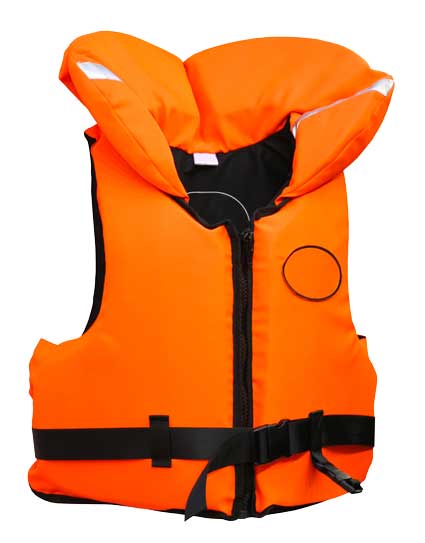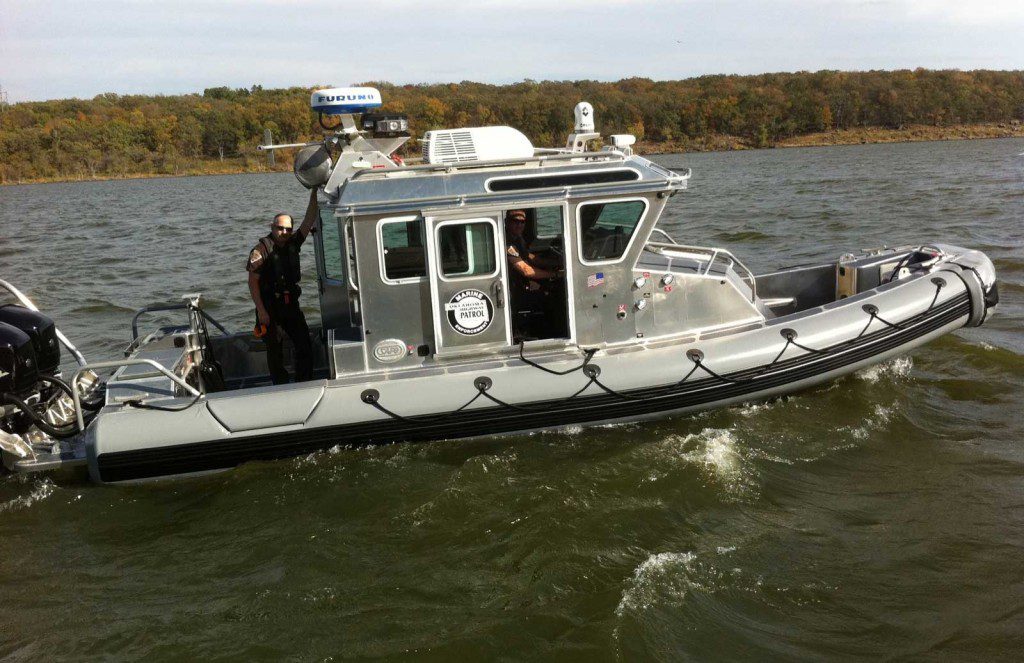 [dropcap]With[/dropcap] over 200 lakes and more than one million surface acres of water, it is no surprise that boating is a popular pastime for Oklahomans. Whether you are relaxing on the sparkling waters of Grand Lake O’ The Cherokees or boating on Lake Eufaula, our state’s largest lake, there are a few important things to know so your summer excursions don’t take a tragic turn.
[dropcap]With[/dropcap] over 200 lakes and more than one million surface acres of water, it is no surprise that boating is a popular pastime for Oklahomans. Whether you are relaxing on the sparkling waters of Grand Lake O’ The Cherokees or boating on Lake Eufaula, our state’s largest lake, there are a few important things to know so your summer excursions don’t take a tragic turn.
Lieutenant Mark Brown, the Oklahoma Boating Law administrator and supervisor of the Oklahoma Highway Patrol Marine Enforcement Section’s Boating Education Program, shares four simple rules all Oklahomans should follow during their aquatic adventures.
Wear it!
And by it, Lieutenant Brown means a U.S. Coast Guard-approved life jacket.
“The majority of people who die in boat crashes drown, and most people who drown never intend to be in the water,” Brown shares. “Drowning is one of the most preventable forms of accidental death.
“Saving lives on the water can be as simple as putting on a life jacket. But a life jacket won’t work if you don’t wear it.”
Know before you go.
Just like we do before we get behind the wheel of a car, boating safety must begin prior to hitting the water. In times of crisis, we all fare better if we know what to do and when to do it.
“Statistics show that an educated boater is much safer,” Brown says. “During the past 10 years, over 90 percent of the boat operators in Oklahoma involved in a boating crash have had no boating safety education.”
Just like our roads and highways, our waters have regulations and navigational rules of the road that are meant to help us all be safer. For example, did you know that Oklahoma state law requires all persons between the ages of 12 and 16 years old to complete an approved boating safety course before operating a boat powered by a motor in excess of 10 horsepower, any personal watercraft, or a sailboat 16 feet in length or greater?
The OHP Marine Enforcement Section offers these boating safety classes for free. While the classes are required for young boaters, Brown explains the material is designed with all boaters in mind and takes less than eight hours to complete. In addition to the valuable and potentially life-saving skills taught in the class, boaters also can enjoy a financial perk.
“Many insurance companies offer discounts on boat insurance premiums for families that have completed a boating safety class,” Brown shares.

Photo courtesy of the Oklahoma Department of Public Safety.
Keep a proper lookout for other boaters and the weather.
Attentive and defensive driving is as important on the water as it is on the road.
“Most boating accidents in Oklahoma are a result of a collision between two vessels,” advises Brown. “Never assume the other boats you encounter know the proper navigation rules.”
While operating a boat has many similarities to driving a land vehicle, boating does present some important differences. Not often do drivers unexpectedly encounter people playing in the road. However, on the water, boat operators need to keep a close eye out for swimmers, skiers and others in the water.
“Boat operators should focus on safely operating their boat and avoid distractions such as texting and driving,” Brown says.
As any Oklahoman is well aware, our weather can be volatile and can change quickly. So it is extremely important to be weather aware, especially when on the water.
“Check weather forecasts throughout the day when you are at the lake and allow plenty of time to get off the lake if bad weather is predicted,” advises Brown.
Water and alcohol don’t mix.
This advice really doesn’t need much explanation to understand the importance. However, on a hot, sunny Oklahoma summer day, a cold drink can be really enticing. But it is just as important to refrain.
“Alcohol and water are a deadly combination,” Brown says. “Alcohol is a depressant, and when combined with the heat and the glare of the sun plus other marine environment stressors such as boat noise and water motion, the effects of alcohol can be intensified.”

























